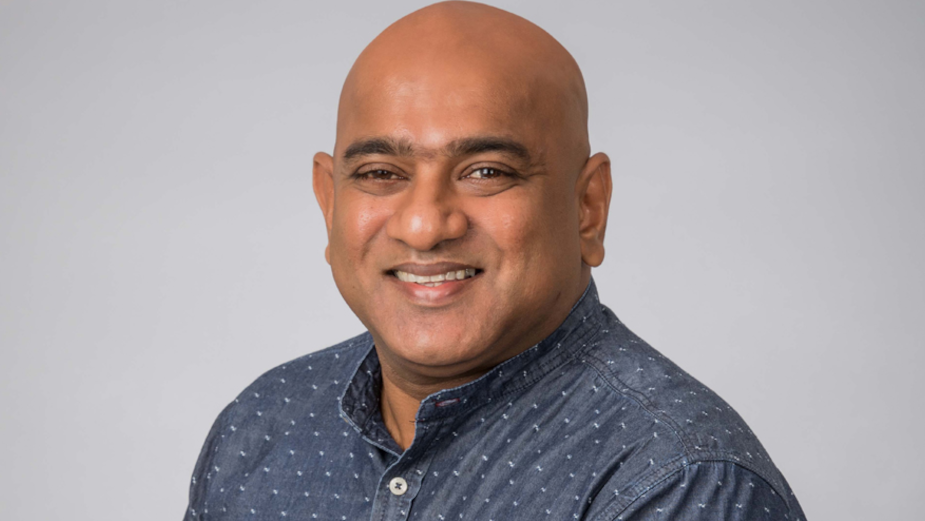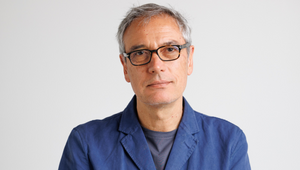
Bossing It: Learning Hard Lessons with Thayalan Bartlett

Thayalan Bartlett has three decades of advertising behind him. He has worked across multiple categories spanning a range of local and multinational brands in Financial Services, Telecom, FMCG, Food & Beverages,Travel & Tourism, Fintech, and Social Impact projects both in Sri Lanka and in the South East Asian region.
Taking over the reins at MullenLowe, post IPG’s acquisition of Lowe LDBLintas in 2015, Thayalan rapidly transformed the agency from a single agency to a cluster of of 5 verticals under the MullenLowe Group (MLG) consisting of MullenLowe, LoweLintas, LoweDigital, LowePublic and LoweActive which are all individually managed profit centres. MLG’s growth has outpaced the country’s growth at an average of 23% YOY over the last 5 years, doubling its margins during the same period. The company defied economic setbacks caused by the Easter Sunday bombings in 2019 and Covid-19 in 2020 and in 2021 to post healthy top and bottom-line growth. Thayalan has been invited to sit on MullenLowe South Asia’s Executive Management Committee.
LBB> What was your first experience of leadership?
Thayalan> My preparedness for leadership was never enough until I got into the role and found the reality that awaited me was very different from my expectations and responsibilities. One of my early experiences of leadership was understanding that people’s ambitions need to be understood and woven into a strong and inspiring vision. When people buy into a vision that is supported by sound ideals and values it becomes a sustainable partnership that uniquely differentiates a company’s purpose.
LBB> How did you figure out what kind of leader you wanted to be – or what kind of leader you didn’t want to be?
Thayalan> My first decade in advertising was anything but a clear pathway to leadership. I was met with varied challenges where survival became more important than leadership aspirations. When facing those challenges, I always had this 'IF' nagging me - “IF I was leading this, what would I have done to make it better? Around age 30, these little ‘ifs” had a way of working on my self-belief that I could make positive changes. I have no idea if my style of leadership is liked or not, but it has always achieved the desired results with the support of collective teams.
LBB> What experience or moment gave you your biggest lesson in leadership?
Thayalan> My entire work life was mostly shaped around unstable economic situations. The insurrection in the late 80s, the 30 year domestic war, the 2004 Tsunami, the global financial crisis, the Easter Sunday attacks, the covid pandemic and in 2022, the economic crisis Sri Lanka is currently facing. All of these challenges have been relentless throughout my career.
Working through such unstable times has forced me to be pragmatic but hopeful, aggressive but sustainable, and not to be silent but resilient. Such adversity has had a positive impact on me, and I think the person I have become is someone shaped by perpetual turbulence. It hasn’t been one specific experience that shaped my career, but my entire work life has been one long and hard lesson in leadership.
LBB> Did you know you always wanted to take on a leadership role? If so how did you work towards it and if not, when did you start realising that you had it in you?
Thayalan> Yes, I think I wanted to be a leader to prove to myself that what I had learned in my preceding years could be redefined to chart a new course for the company and its people. Leadership to me was more a self-challenge than a crowning moment of hard work. It is more than a designation because it is less about myself and more about the people who you work/ed with me.
LBB> When it comes to 'leadership' as a skill, how much do you think is a natural part of personality, how much can be taught and learned?
Thayalan> A lot of it is natural. I don’t think Leadership can be taught as effectively through a book or a study course but through observation and practice. Leadership comes from a very genuine, sincere, and empathetic place to people who want to make change for the collective betterment of all. Leadership must always come from your heart and not your head.
LBB> What are the aspects of leadership that you find most personally challenging? And how do you work through them?
Thayalan> In advertising people are the Plant & Machinery. If this is not understood, then understanding advertising as a business becomes challenging. People are our fuel in our business and we need to always ensure it’s high octane, so they perform at their optimum best. Finding the right people has always been challenging in our industry and it has become even more so in these post Covid times.
At the time I started in advertising ‘mental health’ was merely two words, but today mental health is a big area of my focus. I find a lot of my time being spent addressing human resource challenges of which mental health is also a big part. Very much like in the IT business, if your data is corrupted your output is garbage. In advertising, if one’s mind is not energised the output gets affected.
LBB> Have you ever felt like you've failed whilst in charge? How did you address the issue and what did you learn from it?
Thayalan> Failure is very much a part of most leaders. They can be either momentary or prolonged setbacks. I have learned and endured from both types of failures. Although one may not recognise it, I have come to learn that they are also opportunities in disguise.
As a leader I have learned to have a mindset of a student if not it can be challenging to lead with old solutions for new age problems. Leadership is not a designation, it's a process. Aspiring leaders must not see leadership as a destination because if they do, they will have no place to go once they arrive. I have learned that Leadership is a journey.
LBB> In terms of leadership and openness, what’s your approach there? Do you think it’s important to be transparent as possible in the service of being authentic? Or is there a value in being careful and considered?
Thayalan> Transparency and being Careful or Considered are not mutually exclusive, they are integral to leadership. I have always believed in a culture of transparency and openness but there are times one must be careful and considered. You simply cannot rush into things. The impact of wrong decisions is not only costly, but it also erodes team confidence that could blur the vision you have set for the company. Leaders must recognise they live in a false world of attention, recognition, and reverence that is bestowed on them. In reality it's a lonely place to be and therefore deep consideration must be given even for the smallest action you take.
LBB> As you developed your leadership skills did you have a mentor, if so who were/are they and what have you learned? And on the flip side, do you mentor any aspiring leaders and how do you approach that relationship?
Thayalan> Yes, but my mentors were not leaders, they were (and are) mostly people I engage/d with every day. Leader mentors can be distant from reality and teach you only what they have learned but non-leader mentors tell you everything you need to learn about life and work in real time. As a leader, I also train myself to think I haven’t ‘arrived,’ and I am still on this exciting journey of discovery because the day I think I have 'arrived' there will be no place for me to go.
LBB> It's been a really challenging year - and that's an understatement. How do you cope with the responsibility of leading a team through such difficult waters?
Thayalan> As we are all integrally connected to the global economy, I have come to the realisation that challenges will be there every day. Hoping for better times could leave one disillusioned. The self-belief that the human spirit can overcome anything is the antidote for everyday challenges. We made the covid years, two of the most fulfilling years we had in recent times. Despite working remotely with varied abilities, designation, seniority, orientation, and gender the overall situation brought us all to a common place, called fear. When you know your common enemy then you also know your common goal to overcome it. As a team we became closer and more determined which turned a hopeless situation in business to a great outcome. More can be read here link.
LBB> This year has seen the industry confronted with its lack of action/progress on diversity and inclusion. As a leader how have you dealt with this?
Thayalan> To us diversity and inclusion are not about being vocal about it for the sake of being vocal, but it is an absolute necessity. Advertising is a demanding profession, and it is essential that our business has healthy gender representation across all responsibilities. We have initiated a series of measures to create a better work-life balance for staff. As a result, we have seen a rise in female recruits in the past year and this is very encouraging.
LBB> How important is your company culture to the success of your business? And how have you managed to keep it alive with staff working remotely?
Thayalan> Firstly, the culture of a company is very important because it is deeply ingrained in your purpose. Secondly, we need to stop conjecturing WFH as a weakness. WFH comes with its own set of challenges as Work From Office (WFO) and it was about having the right mindset, work ethic and attitude to accept it. We recognised that WFH can be equally efficient as WFO and have been practising a hybrid system since coming out of covid. We normalised it as something regular and we have managed complex on-line Pitches and even TGIFs and Quiz Shows to keep our staff engaged and motivated.
LBB> What are the most useful resources you’ve found to help you along your leadership journey?
Thayalan> The ‘human’ resource. Leadership is a temporary title and not a permanent entitlement. I always remember my own beginnings before I came into Leadership. I had to build strong teams to maintain and benefit from a thriving culture and also ensure that people believed in and practised the ideals and values of the company in a collaborative manner. Leaders have to be receptive, not instructive. They should not look to be respected but earn the respect of others first.
There is a global question on the concept of Leadership because Leaders either get elected or nominated on sound ideals and values but completely lose sight of it once they occupy the seat of leadership. Leaders need to conclusively answer this question through inclusive, incisive and inspiring actions before their very positions are challenged.












